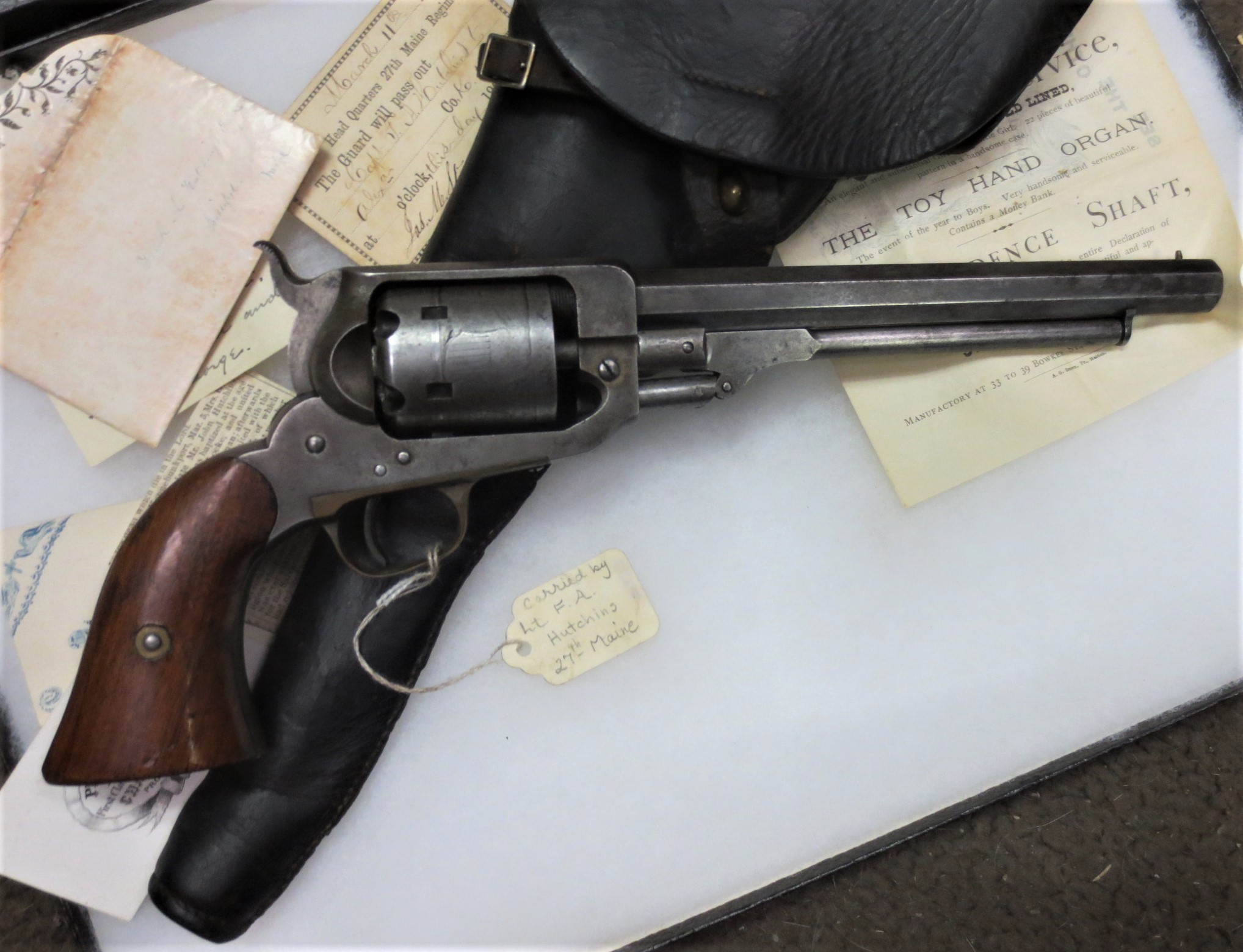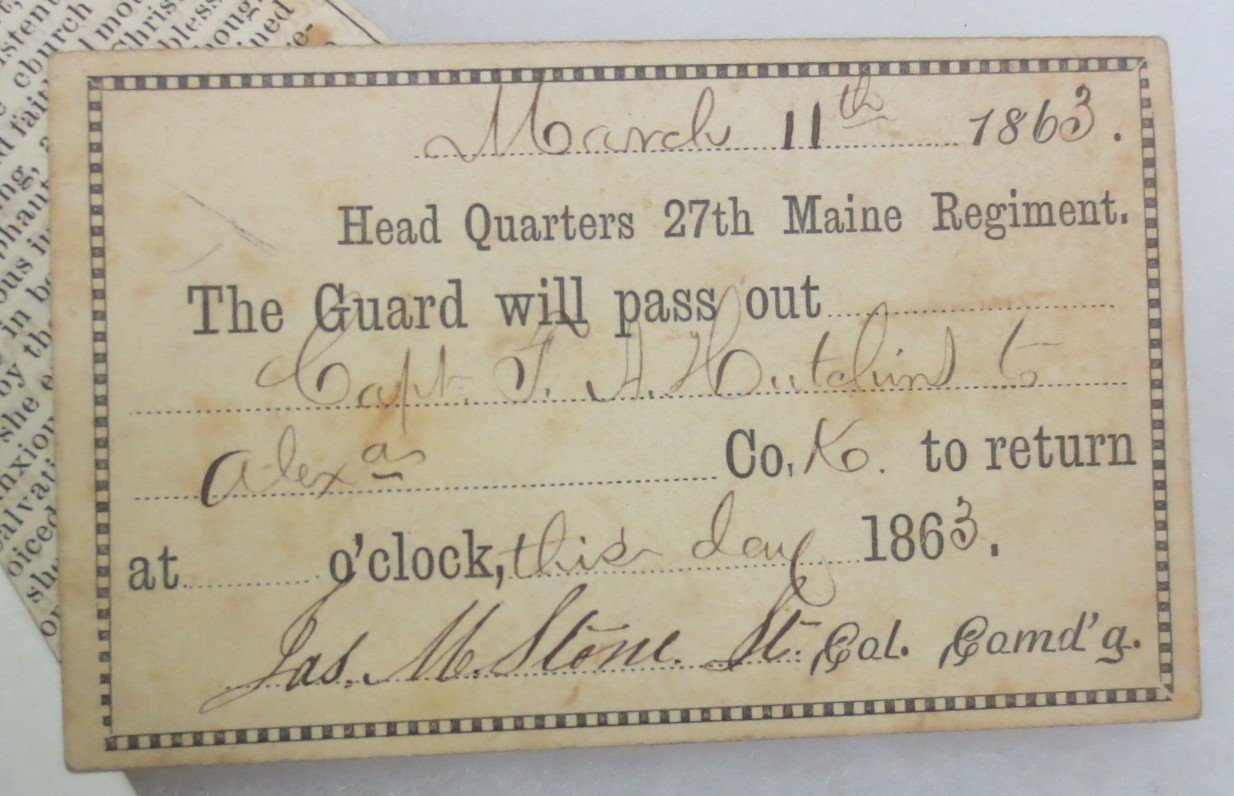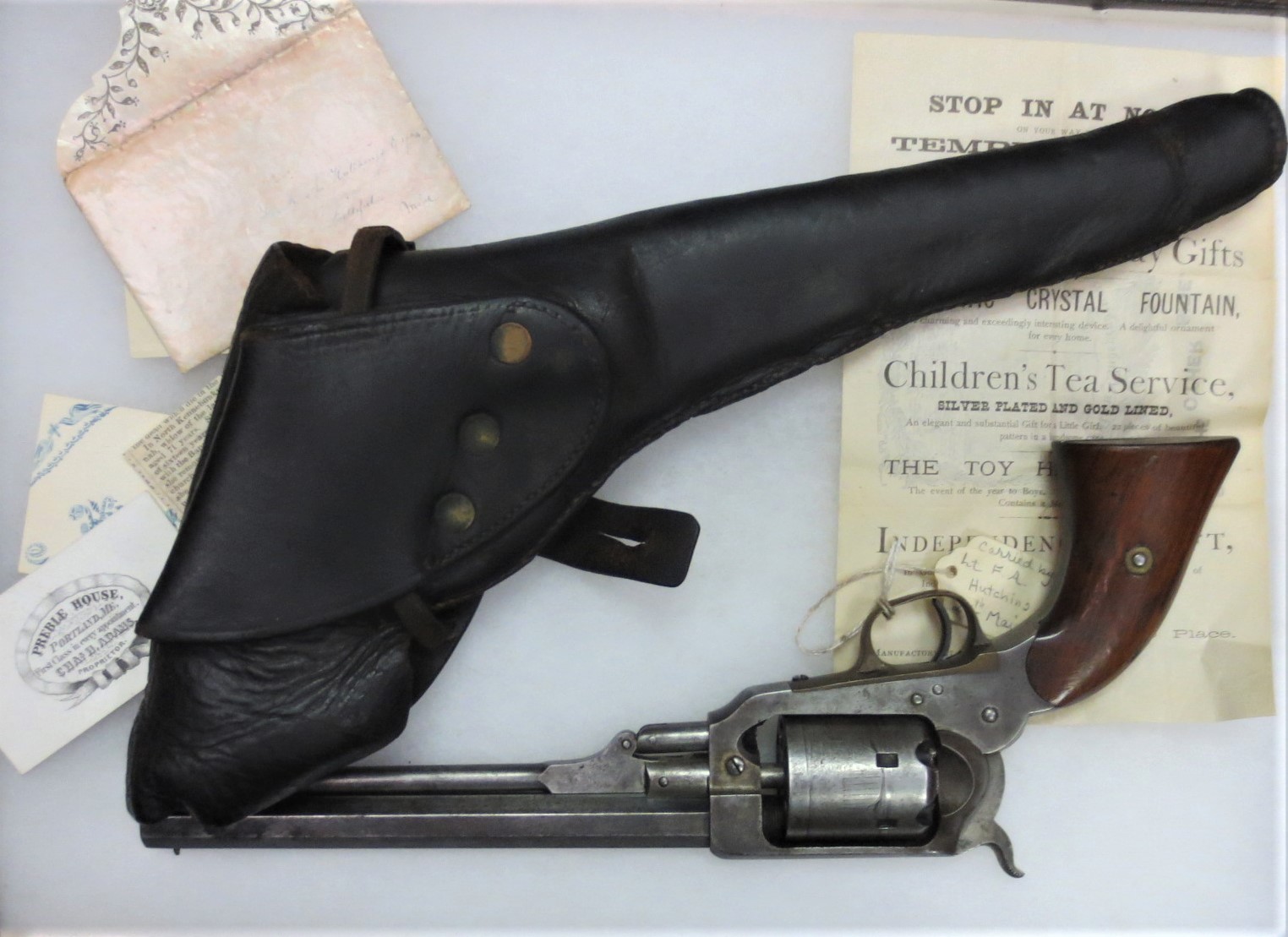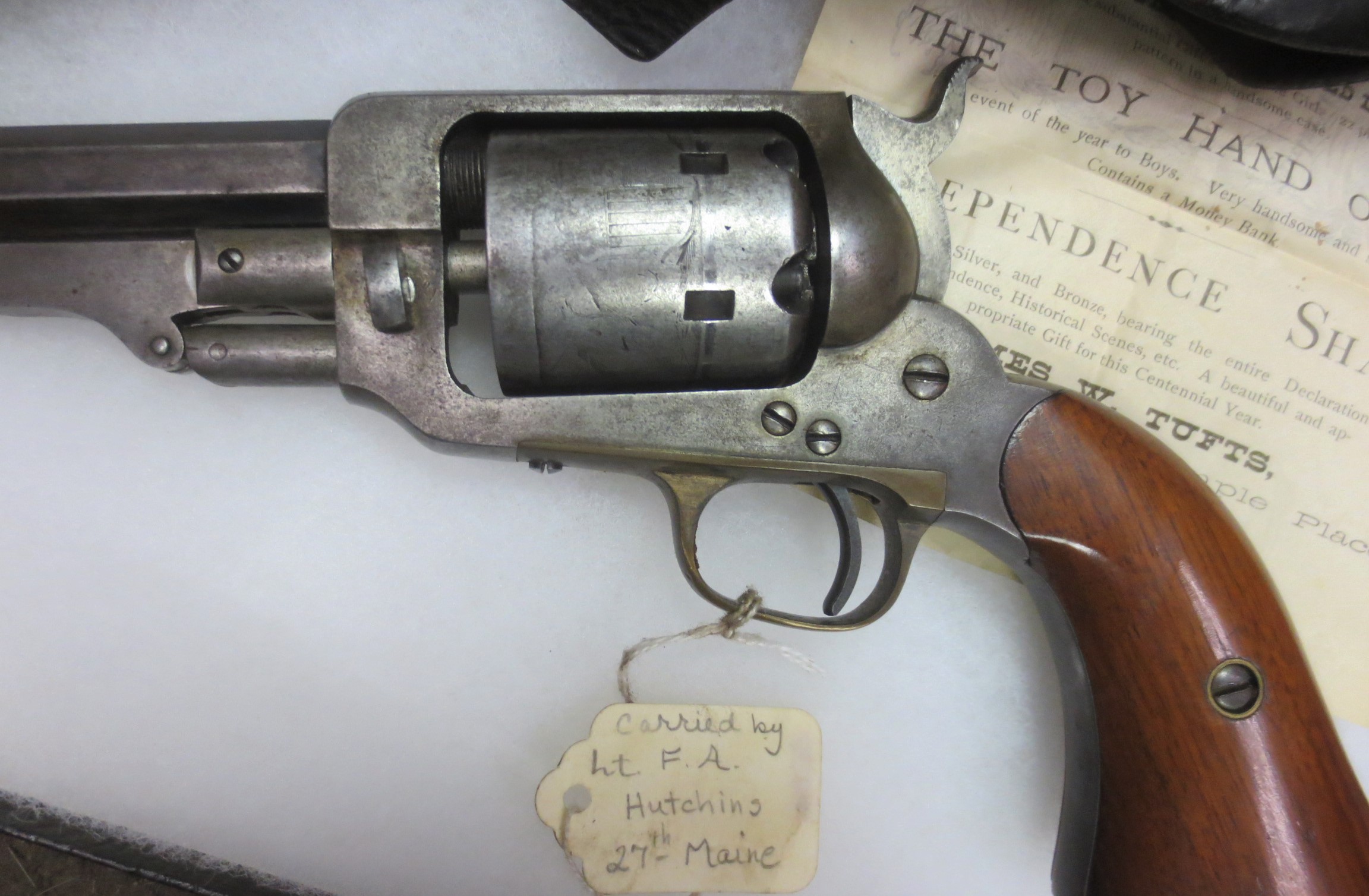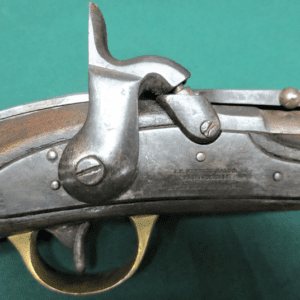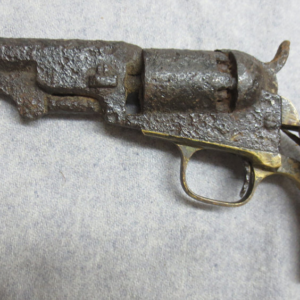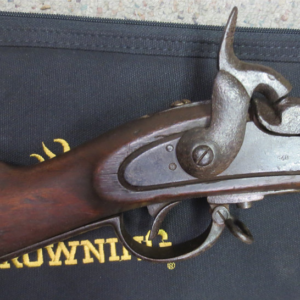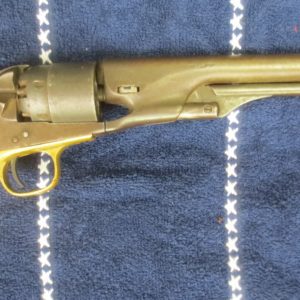Description
This is an exceptional example of the standard Whitney .36 percussion revolver as manufactured circa 1862. Serial number 2xxx. This fine specimen surfaced at an estate auction in 2009 and was purchased by Dave Taylor of Ohio. He sold it in 2010 and it is now back on the market for the first time in a decade! The revolver is in fine condition overall with generous cylinder scene, almost always absent on a Whitney .36 pistol. On a one to ten scale, it is a solid 8+ overall. The revolver is accompanied by the original fine grade leather holster and a variety of personal items of the owner, Lt./Capt. Frank A Hutchins who enlisted in 1862. Hutchins served in Company K, 27th Maine Infantry until his discharge with the remainder of his regiment in July, 1863. Present as well is a very rare Civil War pass! This grouping is accompanied by all original correspondence from Mr. Taylor as well as the original auction catalog where it was sold. You really won’t find a better identified grouping of a line officer from the American Civil War era.
Hutchins was promoted to Captain on January 28, 1863 and was a 32 year old resident of Kennebunkport, Maine, when he enlisted on September 30, 1862.
One of eight regiments raised by Maine in the fall of 1862 under the call for men to serve nine-month terms, the 27th Maine was formed primarily of volunteers from York County, Maine. They went into camp at Portland, Maine on 10 September, with the officers being mustered into service on the 19th and the enlisted men on the 30th. After a short furlough home, and the addition of a few later enlistments to complete the regiment, they left for Washington, D.C. on 20 October 1862. The unit was attached to the XXII Corps, first belonging to Casey’s Division and later to the division of General John Abercrombie. They served as pickets in the defenses of the capital through their entire term.
First encamped on East Capital Hill upon their arrival in Washington, they soon moved to Arlington Heights, Virginia and afterward to Hunting Creek, where they went into winter quarters until March 1863. In the spring, they relocated along with the 25th Maine to Chantilly, Virginia and were there until 25 June, when they were transferred into the Army of the Potomac and ordered to report to General Slocum and the XII Corps at Leesburg, Virginia. This order was quickly changed, as it had not been known that the 1st Brigade (25th Maine and 27th Maine) were only nine-month units and their terms were about to expire, so they were instead sent to Arlington Heights for preparations to their mustering out and subsequent return to Maine.
This unit was called the “Shower of Stars” regiment as each member was awarded the Congressional Medal of Honor!
Volunteer service and the Medal of Honor
On the request of President Abraham Lincoln, Secretary of War Edwin Stanton sent letters on 28 June 1863 to the commanding officers of the 25th Maine and 27th Maine regiments, asking for them to remain beyond their contracted service due to the invasion of Pennsylvania by Gen. Robert E. Lee and his Confederate Army. Declined first by the 25th Maine, the 27th was then asked, and over 300 men volunteered to remain beyond their service time in the defenses of Washington during what became the Gettysburg Campaign. When Colonel Wentworth delivered the message to Secretary Stanton, he was informed that “Medals of Honor would be given to that portion of the regiment that volunteered to remain“. With the battle soon over, they left Washington for home on 4 July, reuniting with the rest of the regiment in Portland for their mustering out on 17 July 1863. Following the end of the war, when the promise to award medals to the volunteers was fulfilled, there was a lack of an agreeable list of those who stayed behind in Washington. This resulted in some 864 medals being made, and it was left up to Wentworth to distribute them to those members he remembered staying behind with him. The MOH awarded to George Washington Emmons can be seen at Old Gordon Gravestones. These medals were later purged by Congress in 1917 as the actions of the regiment did not meet the criteria for receiving such a medal.

